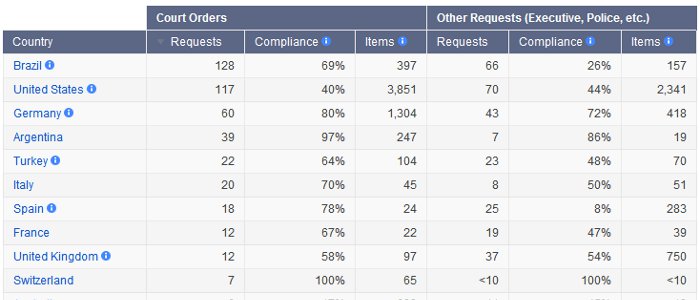Google said this week that the fifth data set to be released as part of the company’s Transparency Report again shows widespread political censorship around the world – some of it, disturbingly, in Western democracies.
In many areas, it seems that local authorities are attempting to strong-arm Google into removing content that threatens their interests. In the United States, for example, the company refused to comply with removal requests from local police departments that requested that a blog post and more than 1,000 YouTube videos.
Senior policy analyst Dorothy Chou wrote that “what we’ve seen over the past couple years has been troubling, and today is no different.”
“When we started releasing this data in 2010, we also added annotations with some of the more interesting stories behind the numbers,” Chou said. “We noticed that government agencies from different countries would sometimes ask us to remove political content that our users had posted on our services. We hoped this was an aberration. But now we know it’s not.”
Internationally, compliance with local governments was spotty. While Google complied with a number of requests to remove videos allegedly mocking the Thai royal family, they did not take down any videos that Pakistani authorities believed to be making fun of that country’s armed forces and political officials.
The search giant began its interactive Transparency Report project about two years ago, and has expanded the service by incorporating data on service disruptions and copyright-related takedown requests. Unlike the traffic and copyright portions of the report, requests made by the government are released every six months, because they require extensive human input.
Google, which rose to prominence by categorizing the indexable portions of the web, has a business as well as potentially ideological interest in preserving the open web. Company co-founder Sergey Brin called out media and web companies, political trends, and censor-happy governments in April for threatening that ideal.
Chou said she hopes that “by being transparent about these government requests, we can continue to contribute to the public debate about how government behaviors are shaping our web.”
Image: Google







